 Petzlover
Petzlover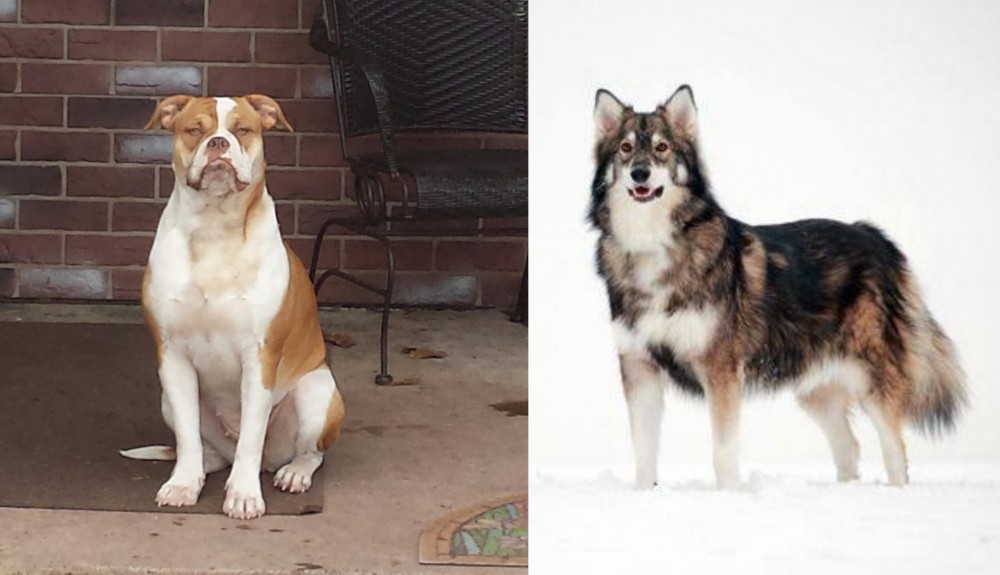 Alapaha Blue Blood Bulldog is originated from United States but Utonagan is originated from United Kingdom. Alapaha Blue Blood Bulldog may grow 23 cm / 9 inches shorter than Utonagan. Alapaha Blue Blood Bulldog may weigh 7 kg / 16 pounds more than Utonagan. Both Alapaha Blue Blood Bulldog and Utonagan has same life span. Both Alapaha Blue Blood Bulldog and Utonagan has same litter size. Both Alapaha Blue Blood Bulldog and Utonagan requires Moderate Maintenance.
Alapaha Blue Blood Bulldog is originated from United States but Utonagan is originated from United Kingdom. Alapaha Blue Blood Bulldog may grow 23 cm / 9 inches shorter than Utonagan. Alapaha Blue Blood Bulldog may weigh 7 kg / 16 pounds more than Utonagan. Both Alapaha Blue Blood Bulldog and Utonagan has same life span. Both Alapaha Blue Blood Bulldog and Utonagan has same litter size. Both Alapaha Blue Blood Bulldog and Utonagan requires Moderate Maintenance.
 Alapaha has a very interesting history. Their origin dates from one family that lived near Alapaha river in Georgia, in the USA 200 years ago. The family rescued dying breed of Plantation Bulldog. They actually had this breed for 80 years and every dog was named Otto. This breed was not just saved, but the family created a perfect guard dog. Alapaha Blue Blood Bulldog started to expand and by 1980s they spread through the country.
Alapaha has a very interesting history. Their origin dates from one family that lived near Alapaha river in Georgia, in the USA 200 years ago. The family rescued dying breed of Plantation Bulldog. They actually had this breed for 80 years and every dog was named Otto. This breed was not just saved, but the family created a perfect guard dog. Alapaha Blue Blood Bulldog started to expand and by 1980s they spread through the country.
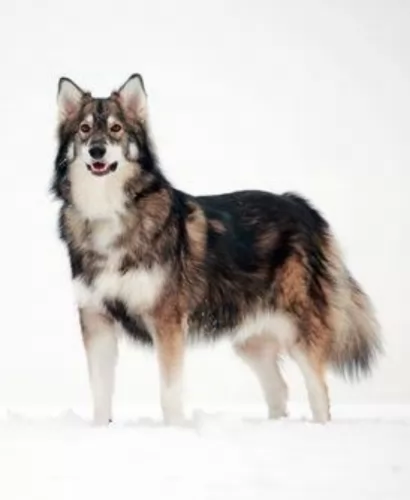 The Utonogan is such a wolf-like dog, you couldn’t be blamed for thinking you’d come face to face with a true wolf. They’re a rare dog breed that came about from crossing the Siberian Husky, the German Shepherd and the Alaskan Malamute.
The Utonogan is such a wolf-like dog, you couldn’t be blamed for thinking you’d come face to face with a true wolf. They’re a rare dog breed that came about from crossing the Siberian Husky, the German Shepherd and the Alaskan Malamute.
The dog was developed by Edwina Harrison and it was in the 1980s that the dog was introduced into the UK.
The Utonagan is a rare dog with only a few breeders. Take care with where you buy your Utonogan from and certainly steer clear of backyard breeders or puppy mills.
 Alapaha Blue Blood Bulldog height is approximately 61 cm, while their weight variates from 34-47kg. Have in mind that females are slightly smaller than males.
Alapaha Blue Blood Bulldog height is approximately 61 cm, while their weight variates from 34-47kg. Have in mind that females are slightly smaller than males.
A lifespan of Alapaha Blue Blood Bulldog is approximately 11-13 years, but it depends from dog to dog, and with proper care, they can live much longer.
Litter Size of this breed depends but average is 4-8 puppies.
Other Names for Alapaha Blue Blood Bulldogs are Alapaha, Otto, Otto Bulldog.
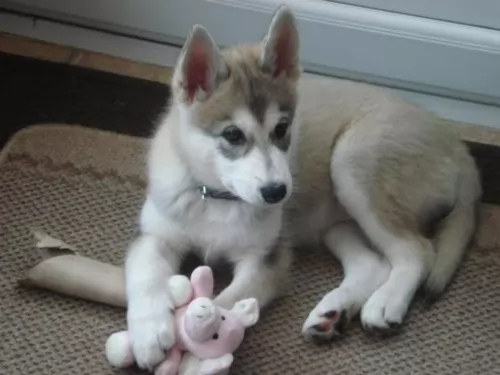 These dogs are large and lean, looking vibrant and strong. They stand at between 63-84 cm in height and weigh roughly between 32-40 kg.
These dogs are large and lean, looking vibrant and strong. They stand at between 63-84 cm in height and weigh roughly between 32-40 kg.
The body is long with strong but slender legs with webbed paws. They look like wolves with the sharp muzzle, the erect ears, bushy tails and slanted eyes with black eye rims. The double coat is thick and straight. Colors of the coat can be silver or gey, cream, brown, or black. The coat becomes thicker in the Winter.
The Utonagan is a very social dog, wanting to spend a lot of time with his human family. They have so many excellent qualities that make him a splendid pet - loving, loyal and gentle.
Whether you have other pets in the home or children, he is a dog that is able to get on with everyone. He is wary of strangers though and with training ad socialization he is going to be the most fantastic pet and companion.
 Alapaha breed is not just beautiful and unique breed, but they are also great family dogs. They are very loyal, but also very protective and sometimes possessive. Alapaha will require a lot of attention. It is very important to train your dog properly from the early age. A steady and firm hand is important so if you are first time owner, consider having this breed twice. You should not punish your dog, or implement any types of old-fashioned way of training. They do not respond well to that. Overall, they are very smart and quick learners. Alapaha needs to be socialized with other animals from the early age. They can be aggressive towards dogs that they don’t know. At first, you can train them around the house with family and friends, and after the puppy receives all the vaccines, you can start with socialization with other dogs. If you are first time owner and you want this beautiful breed, you should advise with more experienced breed owner. They simply have more experience than you and they know and understand the puppies, so you will receive more accurate advice. Have in mind that every dog has its own personality. Overall, if you train your dog properly you will have a happy and healthy dog that will be amazing with other animals and especially family members.
Alapaha breed is not just beautiful and unique breed, but they are also great family dogs. They are very loyal, but also very protective and sometimes possessive. Alapaha will require a lot of attention. It is very important to train your dog properly from the early age. A steady and firm hand is important so if you are first time owner, consider having this breed twice. You should not punish your dog, or implement any types of old-fashioned way of training. They do not respond well to that. Overall, they are very smart and quick learners. Alapaha needs to be socialized with other animals from the early age. They can be aggressive towards dogs that they don’t know. At first, you can train them around the house with family and friends, and after the puppy receives all the vaccines, you can start with socialization with other dogs. If you are first time owner and you want this beautiful breed, you should advise with more experienced breed owner. They simply have more experience than you and they know and understand the puppies, so you will receive more accurate advice. Have in mind that every dog has its own personality. Overall, if you train your dog properly you will have a happy and healthy dog that will be amazing with other animals and especially family members.
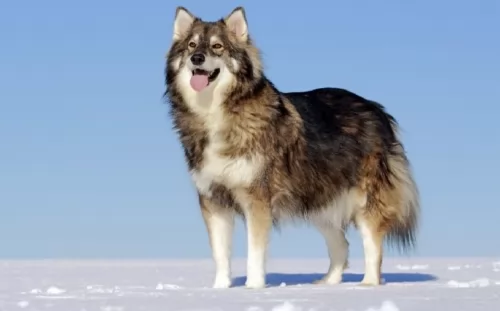 The Utonagan is an intelligent dog and also very social and people-oriented. He wants to be part of his human family, with a friendly, playful nature.
The Utonagan is an intelligent dog and also very social and people-oriented. He wants to be part of his human family, with a friendly, playful nature.
He will certainly not like being left alone and outside day after day. He can become frantic with frustration and this can be laid at the feet of an irresponsible dog owner.
Give him the life he wants and deserves, and this beautiful wolf-like dog will be your friend for life.
 Almost every breed has health issues. That doesn’t mean that your dog will have the same health problems that are typical of the breed. If you choose puppy carefully, from the right breed owners, and if you take them to the regular vet checks with proper diet, most likely that you won’t be having any problems. Alapaha’s usual health problems are hip dysplasia, congenital deafness, entropion- this is an eye related problem, and sometimes they can have skin problems too. Again have in mind that this breed is very healthy and they do not have as many problems as regular bulldogs. The best way to protect yourself from getting a sick dog, you can require tests from the breed owners. If they are reluctant to do that, or they are assuring you that they have healthy dogs, have in mind that something is probably wrong. It is the best to choose a puppy with someone who has more experience with this breed.
Almost every breed has health issues. That doesn’t mean that your dog will have the same health problems that are typical of the breed. If you choose puppy carefully, from the right breed owners, and if you take them to the regular vet checks with proper diet, most likely that you won’t be having any problems. Alapaha’s usual health problems are hip dysplasia, congenital deafness, entropion- this is an eye related problem, and sometimes they can have skin problems too. Again have in mind that this breed is very healthy and they do not have as many problems as regular bulldogs. The best way to protect yourself from getting a sick dog, you can require tests from the breed owners. If they are reluctant to do that, or they are assuring you that they have healthy dogs, have in mind that something is probably wrong. It is the best to choose a puppy with someone who has more experience with this breed.
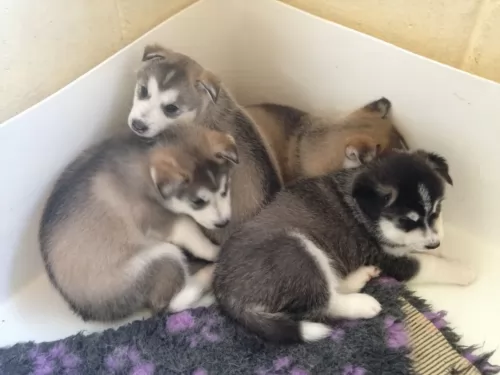 Yur Utonagans can live to be between 12 and 15 years of age, but a few issues can include cancer and joint dysplasia.
Yur Utonagans can live to be between 12 and 15 years of age, but a few issues can include cancer and joint dysplasia.
Cancer is a major cause of death in dogs old and young. There also seems to be some dog breeds that are more prone to cancer than others.
Thankfully most of the cancers are curable if you get them in the nick of time. The warning signs of cancer in your dog is much the same as with people and you’ll discover a new lump on your pet or a wound that simply won’t heal.
When you detect that your pet is lethargic and not acting his usual perky self, it is time to get him immediately to the vet.
 Feeding of this breed variates on the size of the dog and activity. If your dog is big and very active, you will have to feed it more. Overall, 2-4 cups of high-quality dry food would be enough. It is the best if you divide that into 2 meals per day.
Feeding of this breed variates on the size of the dog and activity. If your dog is big and very active, you will have to feed it more. Overall, 2-4 cups of high-quality dry food would be enough. It is the best if you divide that into 2 meals per day.
If you have a puppy, it is the best to feed it 3-5 times per day in smaller portions. That is the best way to develop your dog into a healthy and happy adult. In the first year, you should feed your dog this way.
Grooming Alapaha dog is very easy actually. They have a short coat, so occasional grooming is all that this breed needs. Of course, you can bath your dog when gets dirty, but not too often. With occasional bath and semi-regular brushing, you will have a perfectly clean dog.
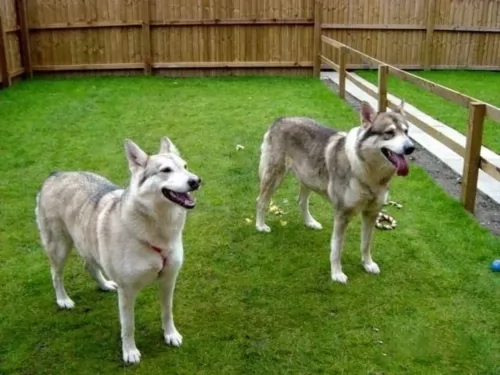 These are very high energy dogs and they will need exercise every day. While they will love a walk, they would be happier with something more vigorous such as a hike.
These are very high energy dogs and they will need exercise every day. While they will love a walk, they would be happier with something more vigorous such as a hike.
Swimming, ball games and hide and seek will all need to be on this dog’s menu of events. It is why it’s a dog that is better suited to life in the country as opposed to life in the city.
If you opt to buy this dog commercially manufactured food, he will need to have a high quality one high in vitamins and minerals and designed for energetic dogs. Try and avoid the inferior brands as they are packed with ingredients that can be of no value to your pet. There are ingredients which can actually make him sick.
Home-made food is always a good thing for dogs, especially when it is simple, nutritious food that won’t aggravate the stomach.
You can’t go wrong with foods such as boiled chicken, brown rice, and vegetables such as spinach, carrots and sweet potato. A little bit of raw meat added in occasionally can be excellent as well. Always make sure that a bowl of fresh water is available to your pet around the clock.
This is such a beautiful dog, you want to keep him that way. His thick coat is going to require regular brushing to keep it free from matting. Not only that, grooming stimulates the skin. You can also check him over at the same time for ticks and fleas and make sure there aren’t any unusual lumps on the body.
This type of dog values the grooming session as it is a bonding time for him, making him that much happier and content.
Other grooming needs will include taking care of his nails and checking inside his ears and mouth for signs of infection.